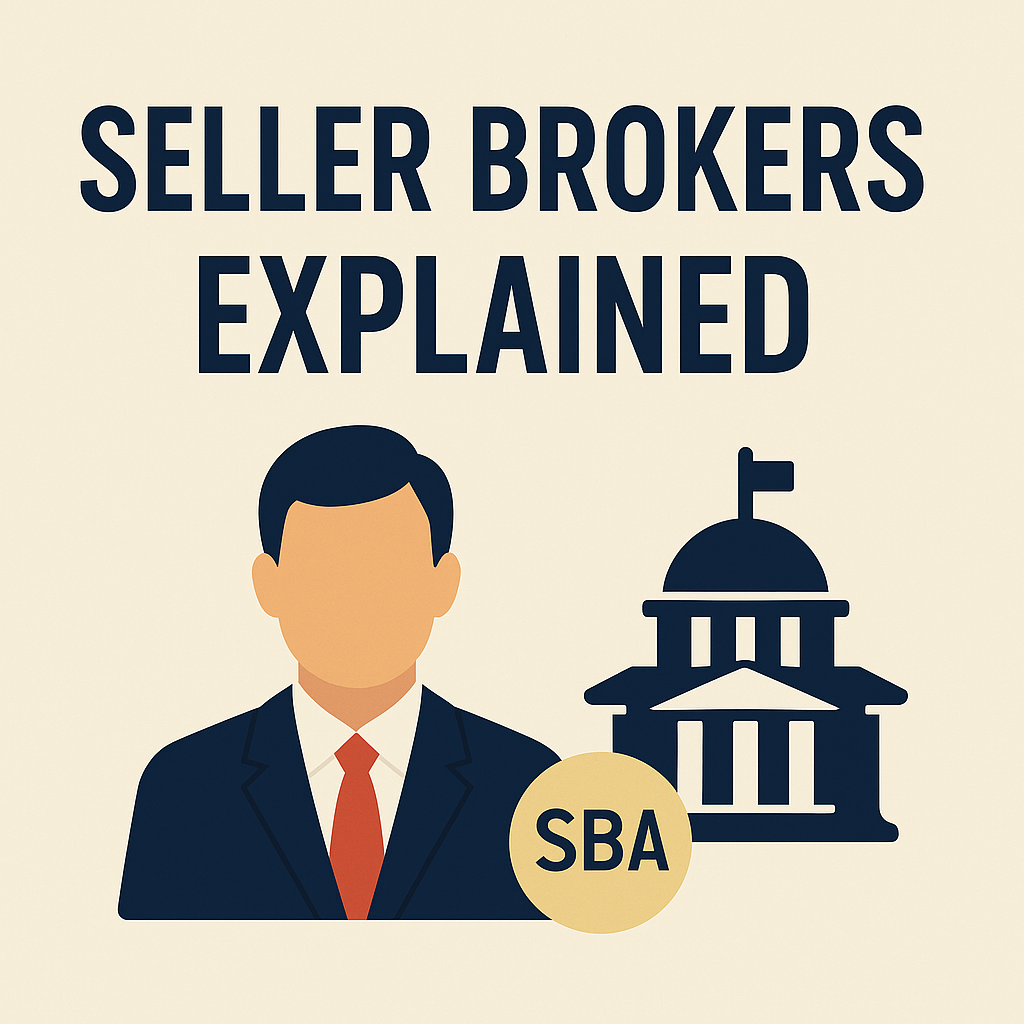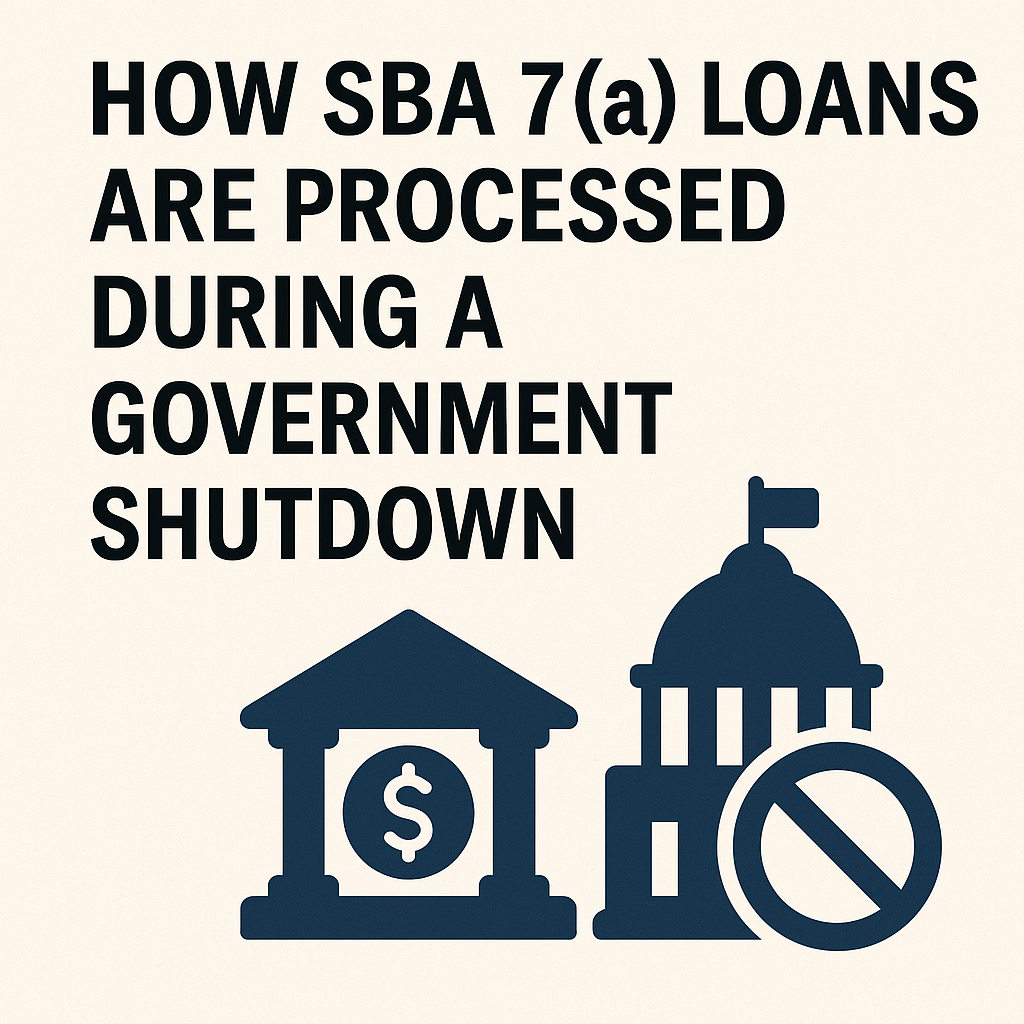
Inside the Mind of a Seller’s Broker
- General
- November 2, 2025
When you start shopping for a business, you’ll quickly learn that you’re not just dealing with sellers. You’re dealing with seller brokers — the people who control access to those sellers, filter the buyers, and decide who even gets a look at a deal.
Understanding how they think is one of the most important skills in business buying. Most first-time buyers assume brokers are “just middlemen.” But the truth is, the seller’s broker shapes your entire deal experience. They decide whether you get the financials, how much time you get with the seller, and how fast the deal moves.
And while they technically don’t represent you, their attitude toward you will determine whether you ever reach the closing table.
Buy-side Brokers and Advisors Know How to Work With Sell-side Brokers
This is one reason having your own buy-side broker or advisor is valuable. A buy-side professional knows the game — they understand how seller brokers think, how they screen buyers, and what language earns trust instead of resistance. They know when to move fast and when to push back.
Most first-time buyers walk into the process alone, unsure how to respond when a seller broker demands “proof of funds” or sets a three-day deadline for an LOI. They assume the broker is being aggressive, when in reality the broker is just protecting their client and their own commission.
A seasoned buy-side advisor knows how to navigate that friction. They’ll communicate with the broker in a way that builds confidence, gets you better access to information, and keeps the deal alive when timelines get tight.
They also know what not to do — like ghosting a broker for a week while you “think it over,” or sending an LOI that looks half-baked. Those mistakes can kill a relationship before it even starts.
In short, a buy-side advisor speaks the seller broker’s language. And when you can speak that language — or have someone doing it for you — you’ll get faster responses, cleaner negotiations, and far better deal flow.
They Live and Die by the Close
Seller brokers don’t get paid a dime unless the deal closes. That’s the entire business model.
If you’ve ever wondered why brokers are constantly asking whether you’re “serious,” why they follow up every few days, or why they want proof of funds before they’ll even schedule a call — that’s why. They spend several months, even frequently more than a year, working on a single listing.
They’re investing time, energy, and marketing dollars: creating listings, packaging financials, running calls, screening buyers. And all of that effort pays nothing unless the buyer performs.
If a deal collapses after months of work, the broker earns zero. Worse, the seller might lose confidence in them. Every dead deal chips away at their credibility.
That’s why a seller broker’s top priority isn’t necessarily getting the highest price — it’s getting the deal closed. A slightly lower offer from a buyer who’s ready, credible, and pre-approved will usually beat a higher offer from someone who looks uncertain or slow.
They Screen Buyers Like Airport Security
If you’ve ever been asked to show “proof of funds” or “bank pre-approval,” you’ve already experienced how seller brokers filter buyers.
To a new buyer, it might feel intrusive — “Why do they need to see my bank statement just to send me the financials?”
To a broker, it’s simple: they’ve been burned too many times.
Their inbox is filled with buyers who are just looking. Some haven’t talked to a bank. Some don’t have a down payment. Some want to “see a few businesses first.” Each of them costs the broker time — and time is money.
So when a broker asks for financials or SBA pre-approval, it’s not arrogance; it’s a survival strategy. They’re protecting their bandwidth. They need to identify real buyers early, because every hour they waste on a dreamer is an hour they could spend with someone who’ll actually close.
Why They Push You on Timing
When a broker says, “The seller wants your LOI by Friday,” or “Other buyers are moving fast,” it’s not necessarily a bluff.
Listings have expiration dates — not formally, but psychologically. The longer a business sits unsold, the colder it gets. Buyers start to assume there’s something wrong with it.
Meanwhile, the seller starts second-guessing the broker. Maybe they’ll change the price, pull the listing, or even switch firms.
Brokers know that once momentum is gone, deals die. That’s why they push urgency. It’s not impatience — it’s self-defense. They’ve seen too many promising deals collapse under “we’ll get back to you next week.”
Weak Buyers Cost Them Everything
Now put yourself in their shoes.
You’ve spent six months pitching your client’s business, running buyer calls, and negotiating two letters of intent — and both fell apart.
By the third time, your seller doesn’t trust you anymore. They’re thinking, Maybe this broker can’t find serious buyers. Maybe they’re just throwing my deal around.
That’s the nightmare scenario for a seller broker.
If they bring several weak buyers to the seller, it creates distrust in their credibility. It makes the seller question whether the broker really knows how to qualify leads — and that doubt can destroy the relationship. The seller might even fire them.
That’s why brokers are so cautious. They’re not just protecting the seller; they’re protecting their own reputation. Every bad buyer is a risk to their career.
So when they test you — asking for documents, rushing deadlines, or pushing for calls — it’s because they’re evaluating whether you’re another tire kicker or a real closer.
Why Most Are Also Real Estate Agents
Many seller brokers come from real estate backgrounds, and in many states, holding a real estate license is legally required to broker a business that includes leased property.
That real-estate DNA explains a lot about their behavior. Real estate brokers are trained to think in terms of listings, showings, and commissions — and business brokers apply the same mindset, just with higher complexity.
They bring the same sense of urgency: move fast, respond quickly, and don’t let deals sit. They know that hesitation kills momentum.
That’s why their energy sometimes feels pushy or over-the-top. It’s not personal. It’s a habit learned from years of commission-based survival.
How to Win Their Trust (and Get Better Access)
You can’t avoid seller brokers — and you don’t want to. They’re the gatekeepers to the vast majority of good deals. But you can learn how to work with them, not against them.
Here’s how to get on their good side:
- Show readiness immediately. If you’re using SBA financing, tell them who your lender is and whether you’re pre-approved. If you have liquidity, be prepared to verify it. Serious buyers do this up front.
- Be responsive. Brokers judge credibility by speed. A three-day gap between replies screams “not serious.”
- Set expectations clearly. Tell them your plan — “I’ll review the financials tonight and decide on an LOI by Friday.” They’ll appreciate that clarity.
- Take local culture into mind. Brokers are different across the country: visualize a New York City broker and a Texas broker. They act differently, speak differently, and will suss you out differently. However, at the end of the day just be professional, truthful, and direct.
Once a broker sees you’re a closer — or you’re represented by a buy-side advisor who knows the process — you’ll start seeing better deals, faster responses, and smoother negotiations.
The Takeaway
A seller broker’s mindset revolves around one obsession: Will this buyer close?
Every proof-of-funds request, every follow-up email, every push for urgency stems from that anxiety.
If you can show them that you’re the kind of buyer who closes — or better yet, have a buy-side advisor who does it for you — you’ll stop feeling like an outsider and start being treated like an insider.
That’s when the best deals open up.
(c) 2025 Prencipe International / M&A Advisory Specialists — For educational purposes only; not legal or tax advice.





